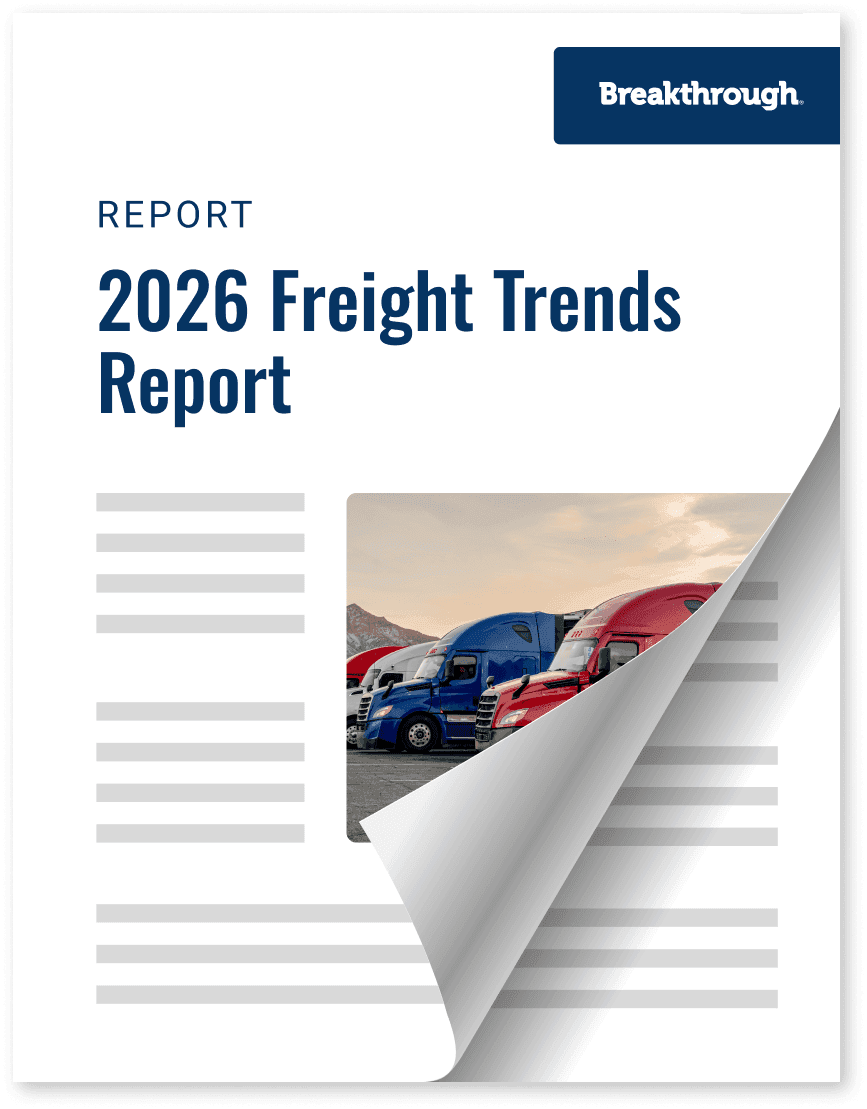2026 Freight Trends Report

Trending
Top Posts
Fuel
Turn Fuel Costs into Savings with Expert Fleet Optimization Strategies
7 min read
January 30, 2026
Market Events
How English Language Proficiency Enforcement Will Shape the 2026 Freight Market
5 min read
January 22, 2026
Freight
Reefer Rates Explained: What’s Driving the Trends?
5 min read
January 20, 2026
7 min read
March 6, 2019

Share:
Table of contents
Browse the table of contents to jump straight to the part you’re looking for
Venezuela’s health has incrementally deteriorated through roughly two decades of Socialist Party direction. Economic hardship, social unrest, and a faltering petroleum industry have ailed what was once Latin America’s most prosperous state, with internal corruption being a primary culprit of the nation’s manifold of complications.

As the economic crisis in Venezuela persists into 2019, Sanctions on crude oil from the US are starting to have an effect on global crude oil dynamics.
Dimensions of these problems recently came to a head when US President Donald Trump imposed sanctions on Venezuela’s state oil company, Petróleos de Venezuela SA (PDVSA), on January 28. This strategy was intended to empower opposing parties of current President Nicolás Maduro and cripple the oil-dependent economy’s relationship with the US, until Maduro relinquishes control and the OPEC member upholds the structure of a true democracy.
US-Venezuela tensions stretch far and beyond political ties, with sanctions adding complexity to the global oil market until Venezuela’s political hierarchy better aligns with the interests of US leadership.
While Venezuela’s current instability is largely attributed to current President Nicolás Maduro, the nation’s downturn was initiated by a predecessor that gradually laid the foundation for Venezuela’s challenges. The election of former President Hugo Chávez in 1998 – though widely respected amongst the general population – was the beginning of Venezuela’s mismanagement and the early stages of political discord that PDVSA had fallen victim to. PDVSA’s industry veterans were replaced by military officials and presidential loyalists in the beginning of the third millennia, and the economy’s lifeblood hung in the balance, as foreign investment became sparse and the full effects of a transitioning oil industry penetrated what was once the nation’s most reliable source of income. President Nicolás Maduro succeeded Chávez upon his death in 2013 and has since failed to execute promises of an economic overthrow, while simultaneously exacerbating issues of humanitarian, democratic, and economic turmoil throughout his tenure.

President Nicolás Maduro was sworn in to a second, six-year term in early January, initiating a near-immediate wave of uproar after his re-election was met with speculation of an illegitimate outcome—otherwise referred to as a “rigged” election. Shortly after Maduro’s induction, a wave of foreign opposition surfaced, with numerous countries taking a public position against Maduro and the autocracy that has followed his rule. On January 23, the United States, Western allies, and the vast majority of Latin America – among other nations – recognized President of the National Assembly, Juan Guaidó, as the legitimate leader of Venezuela. The map above represents the breakdown of global support for both rulers, as President Trump’s announcements to support Guaidó and impose sanctions on PDVSA shortly thereafter have been deemed some of the most powerful attempts to push Maduro out of office and facilitate new, fair elections. Even countries that have pledged explicit support for Maduro have recently shifted their allegiances, taking more of a divided stance on the political conflict altogether.
Since President Maduro took office in 2013, Venezuela’s economic headwinds have drastically accelerated. Following the significant oil price decline that began in 2014, inflationary pressure has spiraled out of control with the most significant upheaval coming shortly after Maduro assumed Venezuela’s presidency (below). The International Monetary Fund projects the national rate of inflation to eclipse 10 million percent in 2019, further reinforcing the magnitude of Venezuela’s struggles over the course of two decades. This reality, compounded by the general population emigrating to avoid hyperinflation, food and medical shortages, and rising crime rates, demonstrates Venezuela’s dire need for a political and economic makeover. Juan Guaidó hopes to turn this lofty goal into a reality.

Inflation has skyrocketed (while GDP conversely plummeted by nearly 20 percent) in the years following Maduro’s Presidency.
From an energy market perspective, rampant corruption has dethroned one of the world’s most prominent oil companies, and the lack of capital has neglected infrastructure and hindered domestic crude oil production. Under direction of current President Nicolás Maduro, oil output has fallen 65 percent since the beginning of 2016, making the reliability of Venezuela’s crude oil supply to the global market uncertain.
The chart below depicts a ten-year history of Venezuela’s oil production, highlighting a drastic decline in output at the end of 2015 that occurred almost concurrently with the dramatic spike in the rate of inflation and declining GDP shown above. Total output has plummeted to roughly 1.2 million barrels per day. Of this output, crude oil exports to the US have followed this decline but have held steady near 500,000 barrels per day based on 2018’s year-end data.

Sanctions on Venezuelan crude oil exports to the US will likely have implications on a global scale. The US will strive to fill its self-induced supply gap with other trade counterparts that produce oil of comparable quality. Canada and Mexico remain the most feasible targets to fill this newfound void, however internal complexities in the US’s northern and southern neighbors will likely challenge these objectives. Of equal importance, Venezuela will need to find new trade partners to avoid losing oil revenues historically paid by the United States. Under terms of the recent sanctions, Venezuela may still export crude oil to certain US companies, though payments from recipients will be placed in escrow accounts for a three-month grace period, or until the nation’s leadership transitions to Juan Guaidó. In essence, the financial incentive for PDVSA to continue exporting heavy crude oil to the US Gulf Coast has come and gone, placing more pressure on Maduro and adding reason for military officials to support Guaidó’s efforts in gaining control of PDVSA’s petroleum assets.
High complexity refineries throughout the US Gulf Coast heavily rely on foreign oil imports to optimize yields and satisfy refined product demand. That said, this region will feel the brunt of the ramifications of recent sanctions on Venezuela, leaving certain companies forced to diversify their source of heavy oil imports, or adjust their crude oil inputs entirely, to make the transition away from Venezuelan crude as seamless as possible.
The chart below shows seven key refiners in the US Gulf Coast that currently leverage heavy, Venezuelan crude oil to produce valuable refined products, such as diesel. While the range of disposition varies by company, one thing that holds constant is the reality that these companies will absolutely feel the impact of President Trump’s decision, painting an unclear picture in terms of how this oil supply gap will be filled, in addition to how it will carry over into refined product output and prices.

Sanctions on Venezuelan oil exports to the US – and their international implications – highlight the interdependent nature of the global oil market. Much remains to be seen in terms of how this underlying tension and political uncertainty will impact longer-term energy market dynamics and the price of fuel used to move goods to market, considering Venezuela’s supply remains important to the global supply picture. Yet, the economic and political crisis in Venezuela is a textbook example of an unsung event that can impact the world energy landscape, reinforcing the value of market knowledge Breakthrough provides to shippers. To gain further insight into recent headlines involving US-Venezuela energy relations, or to learn more about the influencers of transportation fuel spend, contact us!

7 min read
January 30, 2026
Maximize performance with proven fleet optimization strategies. Learn how to manage driver compliance and leverage expanding fuel margins for real savings.
Read more
5 min read
January 22, 2026
Stricter English Language Proficiency rules are impacting driver capacity. See our data on how this is leading to upward linehaul rate pressure in 2026.
Read more
5 min read
January 20, 2026
Understand the latest trends in reefer rates. Our data analysis dissects if the market is in a seasonal swing or facing a true inflection point.
Read more